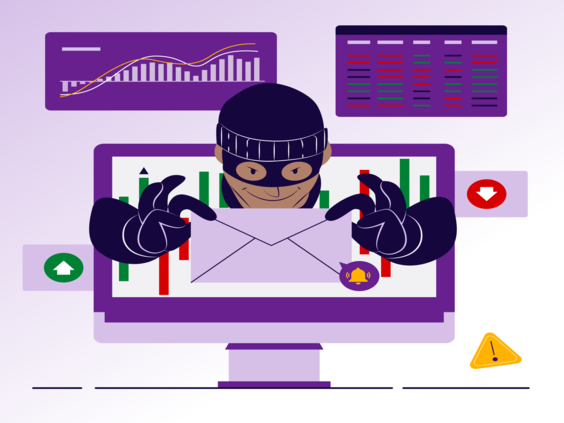

As law enforcement officers, you’re trained to detect deception in the physical world. But in cyberspace, the criminal wears no mask, carries no weapon, and leaves no fingerprints. One of the most common traps even smart, cautious people fall into is the online lottery scam.
With smartphones in every pocket and messages flooding WhatsApp, SMS, and email, lottery scams are among the fastest-growing digital frauds in India. These scams don't just target the elderly or uneducated—even officers and professionals have fallen prey, especially when fraudsters disguise themselves as legitimate institutions.
According to the Indian Cybercrime Coordination Centre (I4C), more than ₹350 crore was lost to lottery and reward-based scams across India in 2023 alone. It's time our police personnel get ahead of this menace—not just as enforcers, but as protectors of their own digital lives.
What Are Lottery Scams?
Lottery scams are frauds where scammers claim you’ve won a jackpot, car, cash reward, or international prize—even if you’ve never entered any contest. They pretend to be representatives from:
- Popular lotteries (EuroMillions, Mega Millions)
- Reputable brands (Tata, Samsung, Google)
- Government-backed schemes
- Even from RBI or Reserve Bank Officials
The goal? To get you to share your personal data or transfer money in the name of "processing charges", "GST", or "customs clearance."
How These Scams Target You
Let’s break it down step-by-step:
Step 1: The Bait
You receive an SMS or email saying:
“Congratulations! You've won ₹25 lakh in the Tata Mobile Draw! Contact Mr. Sinha at +91-9XXXXXX for claims.”
Step 2: False Documents
You’re sent fake RBI letters, identity cards, or cheques with logos that look authentic. Some even send barcoded certificates.
Step 3: The Urgency
You're told the offer is time-sensitive:
“Pay ₹15,000 for registration or lose your prize!”
Step 4: The Payment Trap
You're asked to deposit the "processing fee" into a bank account. Once the money is sent, the scammer vanishes.
Step 5: Repeat Victimization
If you engage, they might target you again with new schemes, seeing you as vulnerable.
Why Policemen Must Be Extra Cautious
You are trusted, respected, and often seen as financially stable. That makes scammers view you as:
- More likely to respond to official-looking documents
- Easier to fool with terms like “RBI Authorization” or “Government Endorsed”
- Less likely to report being victims due to professional embarrassment
Cybercriminals exploit trust and reputation. They send scam messages to thousands of numbers, hoping someone in uniform will bite the bait.
How to Shield Yourself from Lottery Scams
1. Treat Every "Win" with Suspicion - Ask yourself: Did I even enter this lottery? If not, it’s a scam. No genuine lottery reaches out randomly.
2. Don’t Share Personal or Financial Info - Never send your Aadhaar number, bank details, photos, or PAN to unknown sources. Scammers use this to create fake identities.
3. Do Not Transfer Money to Unknown Accounts - No legitimate reward requires you to pay to receive. Whether it's ₹1 or ₹1 lakh, don’t send a rupee.
4. Verify the Source - Search for the organization online. Legitimate companies have verifiable customer care, websites, and terms.
🔍 Tip: Check the domain of email addresses. “lotteryinfo@gmail.com” is a red flag. Authentic organizations use verified domains.
5. Use the National Cybercrime Portal - Report suspicious numbers and emails at cybercrime.gov.in or call 1930, India’s cybercrime helpline.
6. Enable SPAM Filters on Phones and Emails - Use apps like Truecaller or inbuilt spam filters to block known scam numbers.
Red Flags Policemen Should Spot Immediately
|
Warning Sign |
Risk Level |
|
Unknown international number |
Very High |
|
Asking for "processing" or "clearance fee" |
Extremely High |
|
Prize offers from Google/Tata etc. |
Almost always fake |
|
Email from Gmail/Yahoo claiming lottery |
Red alert |
|
“Act now or lose prize” pressure tactics |
Scammer playbook |
|
Poor grammar and spelling in message |
100% suspicious |
Scammers use psychological tricks—greed, urgency, and fear—to make you act without thinking.
Awareness Beyond the Badge
Policemen often double as community protectors. You can:
- Conduct awareness drives in your station and local areas
- Share scam alerts in resident WhatsApp groups
- Educate colleagues, parents, and children about common fraud patterns
“Awareness is the new armor. Equip yourself and your community.”
Real-World Prevention Checklist
|
Task |
Status |
|
Changed all passwords recently |
✅/❌ |
|
Installed anti-spam tools |
✅/❌ |
|
Reported a fake SMS/email lately |
✅/❌ |
|
Warned friends/family about scams |
✅/❌ |
|
Refused to pay to claim a prize |
✅/❌ |
Final Word: Stay One Step Ahead
Being in the police force doesn’t make you immune to digital threats. In fact, it makes you a prime target. The best defense against lottery scams is awareness, verification, and zero emotional response to tempting messages.
Stay sharp, both in uniform and online. Cyber fraud doesn't discriminate—it only exploits.
Cyber Hygiene Foundation
- CyberCrimePrevention CyberAwareness CyberSafety PersonalDataProtection SafeInternetForAll CyberHygieneForAll ITSecuritySolutions CyberForensics
You May Also Like It
Understanding the Growing Threat of Loan Frauds Loan frauds have become
In your role as protectors of law and order, you
Leave A Comment
Don’t worry ! your e-mail address will not published.








0 Comments